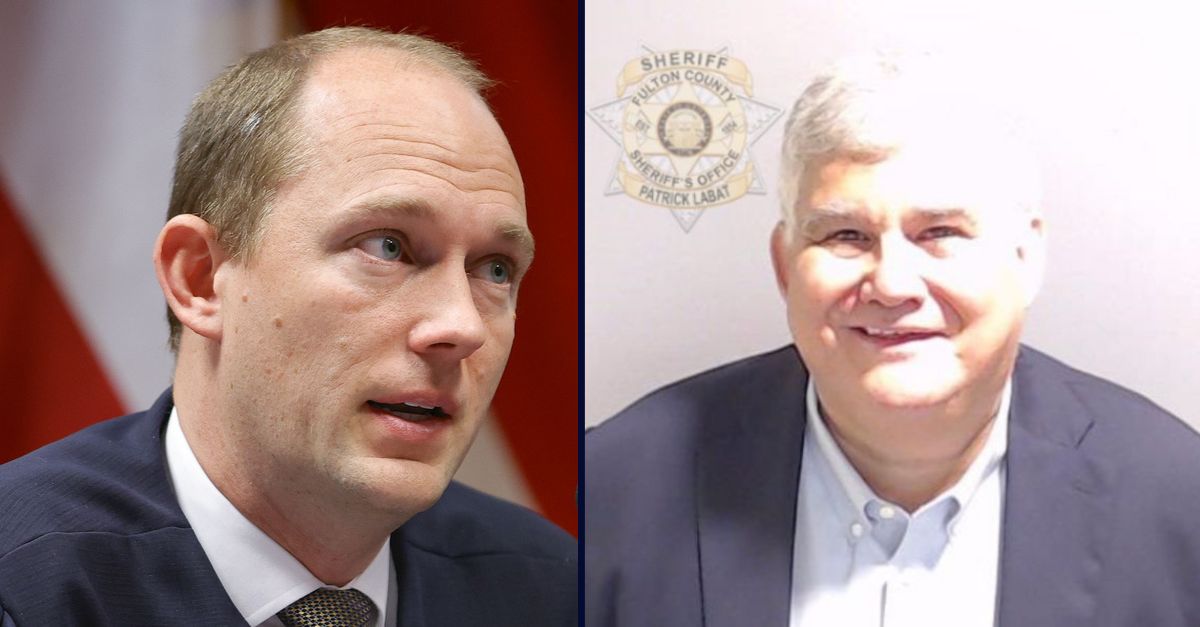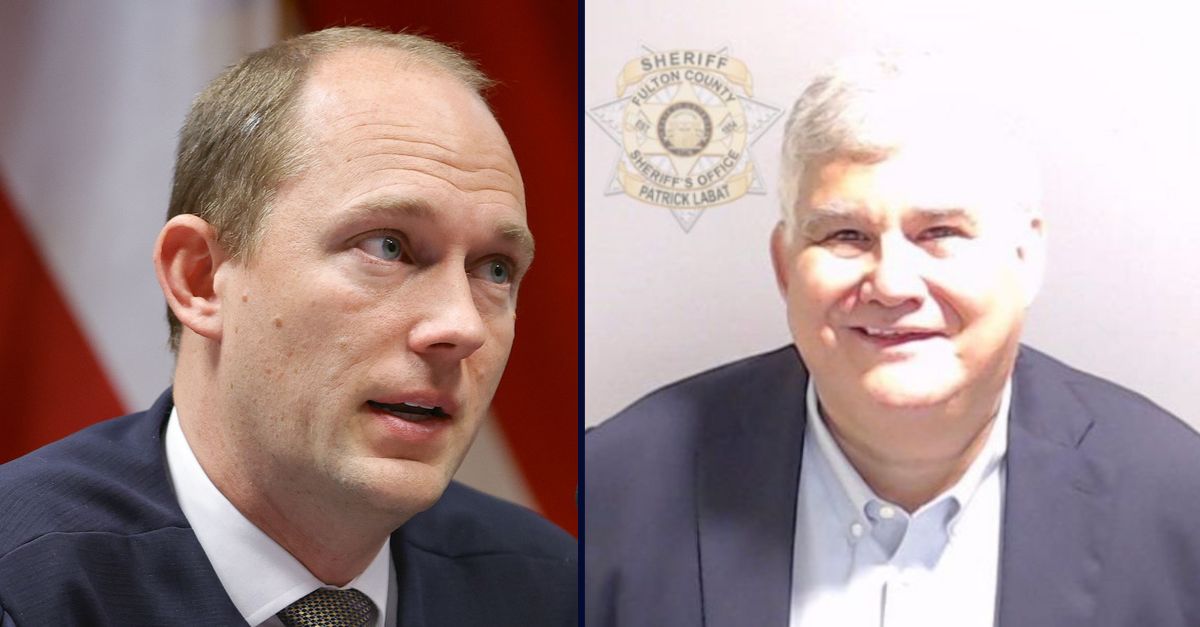

Left: A judge in Fulton County, Scott McAfee (AP Photo/Alex Slitz, Pool, File); Right: Former Georgia GOP chair David Shafer (Fulton County Sheriff’s Office)
The judge presiding over the Georgia racketeering and election interference case involving Donald Trump denied a request by the former chairman of the Georgia Republican Party to dismiss charges related to the fake electors plan.RICODonald Trump The former chairman of the Georgia Republican Party, David Shafer, was charged in the August 2023 indictment with eight counts, including impersonating a public officer and forgery. The motion by David Shafer to dismiss election subversion charges based on the fake electors scheme was denied by the judge.
David Shafer, the former chairman of the Georgia GOP, faces eight counts, including impersonating a public officer and forgery. The charges were included in the August 2023 indictment. The charges against David Shafer include impersonating a public officer, forgery in the first degree, false statements, and criminal attempt to commit filing false documents.
In a motion and during a late March hearing, Shafer's attorney argued that the indictment was flawed because of how prosecutors referred to the legally-suspect effort to have alternate, 'contingent,' or fake electors deliver Electoral College votes to the 45th president instead of Joe Biden in several swing states. flawed effort to have alternate, 'contingent,' or fake electors deliver Electoral College votes to the 45th president instead of Joe Biden in several swing states.
The judge explained in the April 4 denial order that the indictment wasn't defective due to insufficient detail, as claimed by the defense. April 4 denial orderShafer's defense requested the removal of three phrases from the indictment, arguing that they were improper legal conclusions.
Shafer's defense contended that three phrases in the indictment were conclusory and should only be brought up during a trial.
The defense argued that certain phrases in the indictment were conclusory and should only be presented during a trial.
McAfee clarified in the order that a court has the power and obligation to remove prejudicial surplusage or extraneous material from an indictment under Georgia law.
The judge explained that information such as a co-defendant's guilty plea, a defendant's criminal record, or a reference to the defendant's fingerprint should be stricken from an indictment.
McAfee ruled that Shafer did not identify any prejudicial language that should be stricken from the indictment.
The judge noted in the denial order that the challenged language accurately describes the alleged offenses and provides a basis to differentiate the allegedly lawful and unlawful acts of presidential electors, according to the state's theory.
More Law&Crime coverage: Trump RICO co-defendant wants less-democratic jury, district attorney thrown off case
The judge explained that an indictment itself is not evidence and that jurors must be reminded of this at least three times in court.
The judge says that an indictment cannot be rejected or edited just because it includes unproven claims or the State's legal conclusions. The purpose of an indictment is to deal with these issues.
In the end, the court ruled that Shafer's motion did not point out any kind of problem or extra material, but instead provided an explanation that correctly describes the offenses and helps the defendants and the jury understand the charges better.
The judge stated that the proper time to dispute how the state described the charges is during a trial. An accompanying motion to dismiss was denied because it relied on the failed motion to strike.
The court's order states that a defendant can challenge the whole indictment during the trial. Since the Court finds no legal reason to remove this language, the Defendant's claim that certain counts must be dismissed also fails, and the motion is denied.

